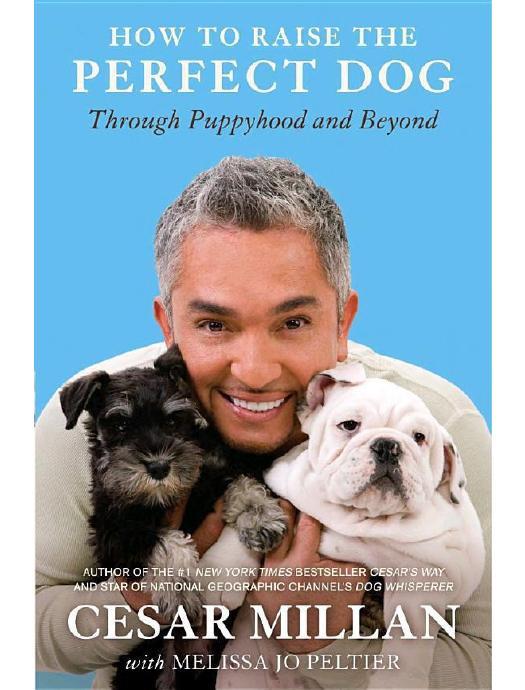How to Raise the Perfect Dog: Through Puppyhood and Beyond by Cesar Millan & Melissa Jo Peltier

Author:Cesar Millan & Melissa Jo Peltier
Language: eng
Format: mobi, epub, pdf
Tags: Dogs, Pets, General
ISBN: 9780307461292
Publisher: Harmony Books
Published: 2009-10-06T04:00:00+00:00
Core: Vaccines that should be given to every dog
Non-Core: Optional vaccines that should be considered only if an individual dog’s lifestyle or risk factors strongly warrant it
Not Recommended: Vaccines not recommended by the AAHA under any circumstances
Core Vaccines Distemper*
Hepatitis (adenovirus-2)*
Parvovirus*
Rabies
Non-Core Vaccines Leptospirosis†
Lyme†
Bordetella (kennel cough)
Parainfluenza
Not Recommended Adenovirus-1
Coronavirus
Giardia
Crotalus atrox toxoid (rattlesnake)
Porphyromonas (periodontal disease)
Since a thorough series of vaccines given in puppyhood has now been determined to provide most of a dog’s immunity for life, the AAHA recommends revaccination no more than once every three years. Many of my holistic veterinarian friends think that even three years is far too often to risk exposing your dog to the health risks of overvaccination, since multiple studies have shown that dogs properly immunized in puppyhood maintain lifetime immunity to hepatitis, distemper, and parvovirus.6 A great option for conscientious dog owners is to ask their veterinarian to provide antibody titer testing for distemper, parvo, or rabies, which shows approximately how much disease-fighting immunity is present in your dog’s system at the time the test is given. If your dog has plenty of antibodies, then the titer level will be high—proof that the vaccines have done their job and your dog is protected. With a high titer level, you can assume your dog doesn’t need a vaccine booster, though even a low blood titer doesn’t necessarily mean another vaccine is indicated. For more information about titer testing, contact www.hemopet.org.
There is a short period of about a week during which the puppy no longer has much immunity from its mother left but the new vaccines have not fully kicked in and started working. This window can allow even the best-cared-for puppies to get sick, but the potential danger can be exaggerated, to the point where dog owners will grow paranoid and keep their puppies inside and isolated for months, ultimately creating frustrated and antisocial dogs. “I tell my clients that ten days after the first vaccine, they should begin to get as much socialization for their puppy as they possibly can,” advises Dr. Charlie Rinehimer of Northampton Community College. “I counsel them to stay away from places like dog parks—where you have no idea of the vaccination or health status of the dogs—during that time, but going to visit friends with dogs, taking walks on a leash, or going for car rides are all great. After sixteen weeks, anything goes as far as I am concerned.”
Download
How to Raise the Perfect Dog: Through Puppyhood and Beyond by Cesar Millan & Melissa Jo Peltier.epub
How to Raise the Perfect Dog: Through Puppyhood and Beyond by Cesar Millan & Melissa Jo Peltier.pdf
This site does not store any files on its server. We only index and link to content provided by other sites. Please contact the content providers to delete copyright contents if any and email us, we'll remove relevant links or contents immediately.
| Breeds | Care & Health |
| Training |
Finding Gobi by Dion Leonard(2842)
Grumpy Cat by Grumpy Cat(2758)
A New Earth: Awakening to Your Life's Purpose by Eckhart Tolle(2653)
The Silkworm by Robert Galbraith(2498)
Tippi by Tippi Hedren(2242)
End of Days by Sylvia Browne(2190)
Total Cat Mojo by Jackson Galaxy(2005)
Backyard Chickens Beyond the Basics by Pam Freeman(1944)
Penguin Bloom by Cameron Bloom(1936)
The Animals Among Us by John Bradshaw(1866)
The Ultimate Pet Health Guide by Gary Richter(1762)
All Things Bright and Beautiful by James Herriot(1757)
The Plant-Based Dog Food Revolution by Mimi Kirk(1713)
Vet in Harness by James Herriot(1706)
Doggy Desserts: 125 Homemade Treats for Happy, Healthy Dogs by Cheryl Gianfrancesco(1685)
Dog Years by Mark Doty(1684)
Cesar's Way by Cesar Millan(1677)
Chicken Soup for the Ocean Lover's Soul by Jack Canfield(1647)
Animal Speak by Ted Andrews(1626)
